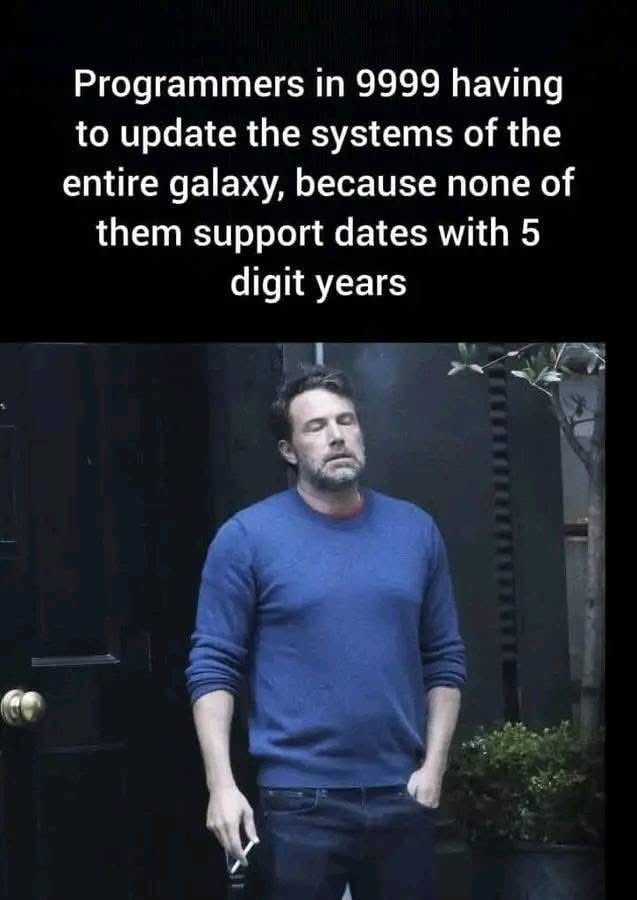this post was submitted on 18 Dec 2024
1117 points (98.4% liked)
memes
12051 readers
3625 users here now
Community rules
1. Be civil
No trolling, bigotry or other insulting / annoying behaviour
2. No politics
This is non-politics community. For political memes please go to [email protected]
3. No recent reposts
Check for reposts when posting a meme, you can only repost after 1 month
4. No bots
No bots without the express approval of the mods or the admins
5. No Spam/Ads
No advertisements or spam. This is an instance rule and the only way to live.
A collection of some classic Lemmy memes for your enjoyment
Sister communities
- [email protected] : Star Trek memes, chat and shitposts
- [email protected] : Lemmy Shitposts, anything and everything goes.
- [email protected] : Linux themed memes
- [email protected] : for those who love comic stories.
founded 2 years ago
MODERATORS
you are viewing a single comment's thread
view the rest of the comments
view the rest of the comments

Actual programmers wondering how you've never seen anyone use ISO 8601 strings as storage.
If you're being handed a string 2022424-12-19T14:44:39Z, and told it's ISO-8601, you should be able to figure it out. Really, a decent parser should be able to recognize that on its own (just use {4,} instead of {4} in regex). It does mean that non-hyphenated YYYYMMDD shouldn't be used (I typically never see them encoded that way) - but even if you did, you'd just do (\d{4,})(\d{2})(\d(2}).
I get your point, but in the same way that people "shouldn't" have been using two digits for year storage, there are certainly many parsers of ISO 8601 that don't match the spec. In 8,000 years I don't think this will be a problem though lol. I don't think we can really perceive what technology might be like that far in the future. But, hypothetically, is year 10,000 was in a few days and this was year 9,999 I would suspect we'd see at least some problems come January.
As an example, YAML 1.2 changed Boolean representation to only be case insensitive in 2009, but in 2022 people still complain about the 1.1 version. (Caveat: I don't know if this person actually ran into a "real" problem or only a hypothetical one.)
I mean, that's exactly what programmers in the '70s thought. That there would be no way in hell that their crap code would still be in use going onto 2000.
Thing is, copy/paste is always going to be easier than writing new code and that's only going to get worse as chat bots start coding for us.
30 years is very different than 8000 lol.
You underestimate the enduring laziness of programmers.